One of my favorite books is Moby-Dick. It’s full of humor, drama, and introspective reflection. It’s expansive, covering seemingly every physical and metaphysical topic under the sun.
It also teaches me to listen.
Ishmael, the narrator (at least “Ishmael” is what he instructs us, as readers, to call him.), spends thousands of words on the kind of minutiae of whaling that could fill a textbook. Melville took liberally from actual whaling accounts (and whaled himself), and the “Cetology” is famous for students’ propensity to skip its detailing of different types of whales..
But there’s a difference between the yarn Ishmael spins and a textbook account of a life spent hunting for spermaceti: He’s a listener, an enlarger, pushing the seemingly meaningless occurrence of whale lines, monkey ropes, chowder, and doubloons into the realm of the existential, the metaphysical, the mystical. In other words, he recognizes that even the smallest scenarios present opportunities to listen, to perceive the wisdom all around us – to practice a new way of thinking and being.
And when I’m really listening, that’s my relationship to my bicycle, a Trek/Gary Fisher Monona hybrid. It’s my most prized material possession, and it’s a beauty. (I regularly hear “Nice bike!” from pedestrians and bike technicians alike.)
I’ve ridden that bike after breakups, at my most financially insecure, full of doubt (and hope), depressed, and overjoyed. It’s been, to borrow a phrase I heard on a Buddhist training, the seat of my enlightenment.
Anyone who has ridden a bike with so many gear combinations knows – consciously or not – that to ride, to travel and progress, most effectively, you must manage the resistance through the gears. Too little resistance, and you risk pumping your legs for no discernable change in speed. Too much resistance, and you wear yourself out.
In other words, you have to find the most appropriate level of resistance for the road conditions, your physical capabilities, your tolerance, and your fatigue level. You have to seek out resistance, listen to your body, and calibrate this tool – and your mindset – to meet your goals.
Sound like a useful lesson to apply to, say, relationships and work? What if I could practice seeking the appropriate level of resistance on my bicycle and use those lessons with a partner, or my boss, or my friend whose mother has just unexpectedly passed away?
On my bike I also learn how to, as Chance encourages, push myself up to and past the point that I think I can’t exceed. On my bicycle, that’s a physical boundary, yes, but it’s also manifested mentally and emotionally. I’m afraid this hill is going to exhaust me and force me to walk my bike, which induces shame. But what happens if am just willing to try to push past this self-imposed boundary, releasing my attachment to an outcome (and knowing that I will survive and can tackle the hill again)?
I’ve said to friends before that all of the lessons I need to learn I can find in my body or in a garden bed, and I think it’s still true today. (Try to spend any semi-leisurely time with a knowledgeable gardener in some dirt, and see if you can’t extrapolate some life lessons out of it.)
The wisdom we need to grow and enrich our lives and the lives of those we love is all around us and within is. We just have to separate the wisdom – the signal – from the noise of consumerism, distraction, doubt, negative self narratives, etc. that at times seems almost as pervasive and persistent as tinnitus.
I hear the noise, and I refuse to believe that there isn’t something more meaningful beneath it. I don’t want to turn around at the end of my life and fear that I spent all my life obsessed with noise, listening to the ringing in my ears.
So I’m going to continue to ride my bike. See you on the trail.
